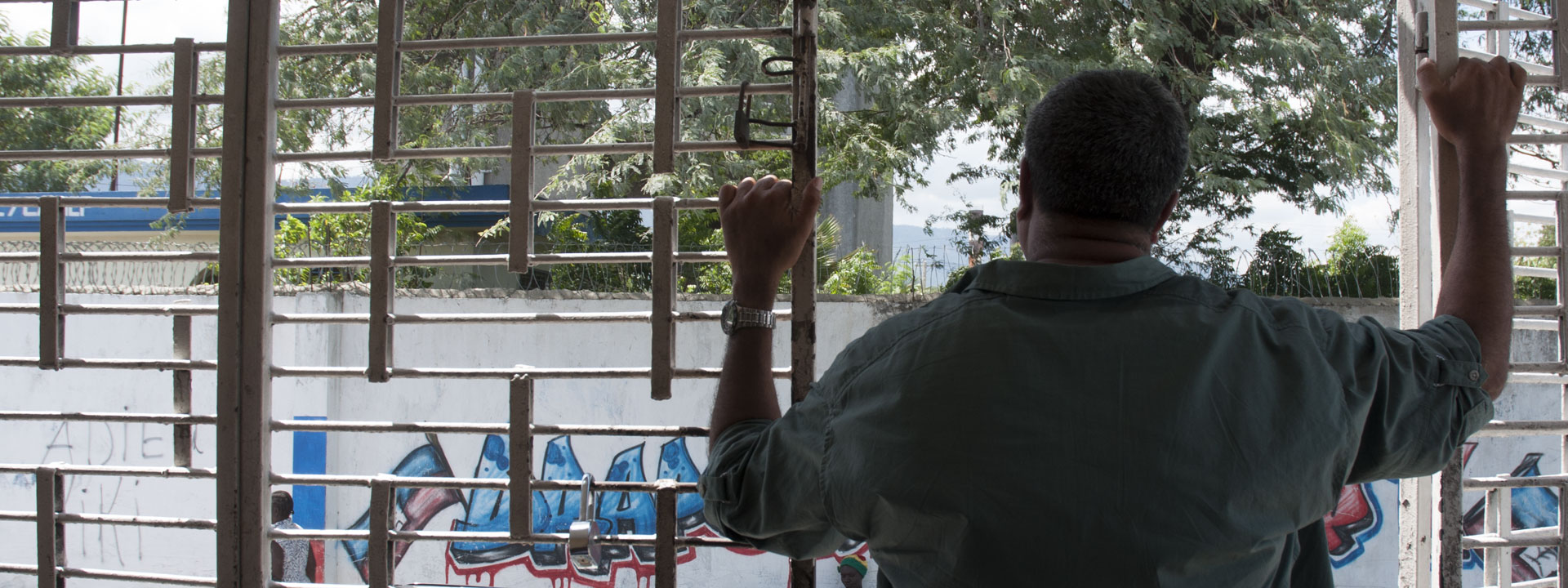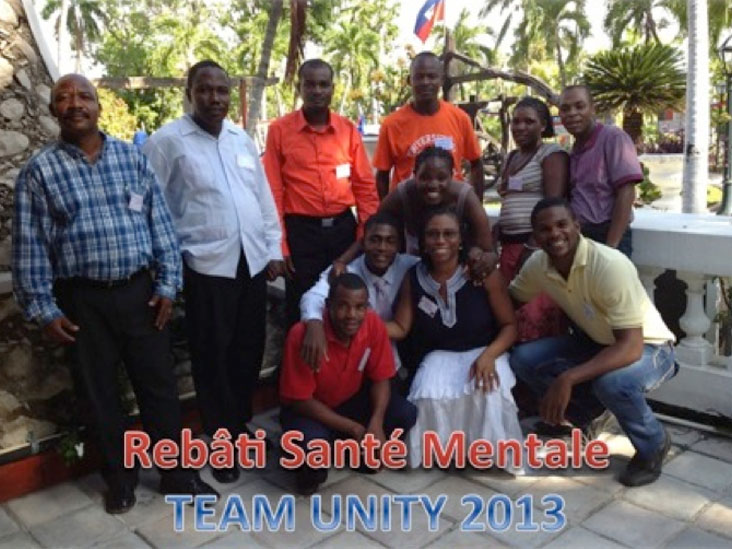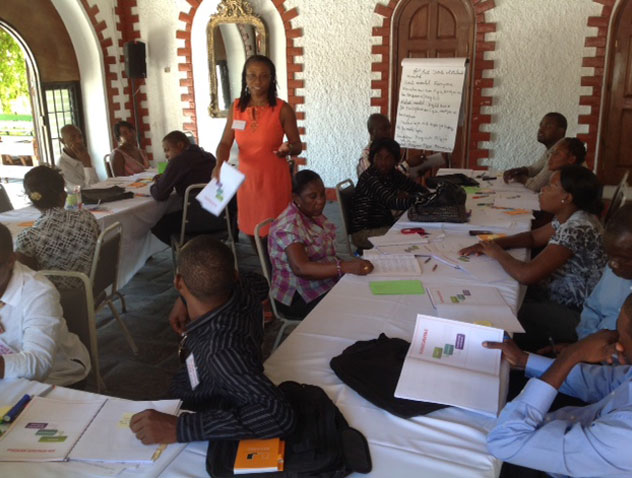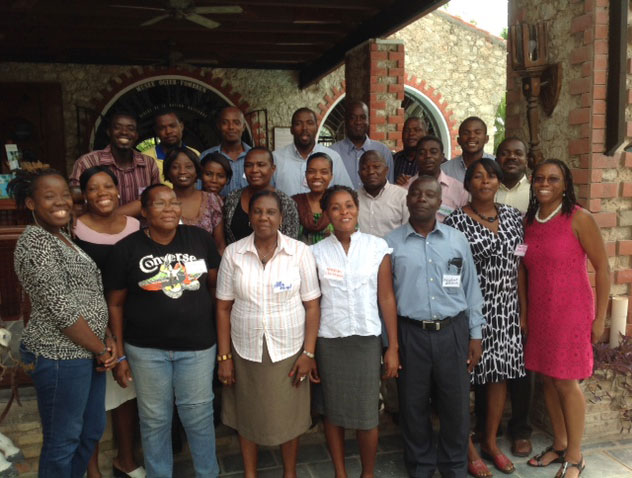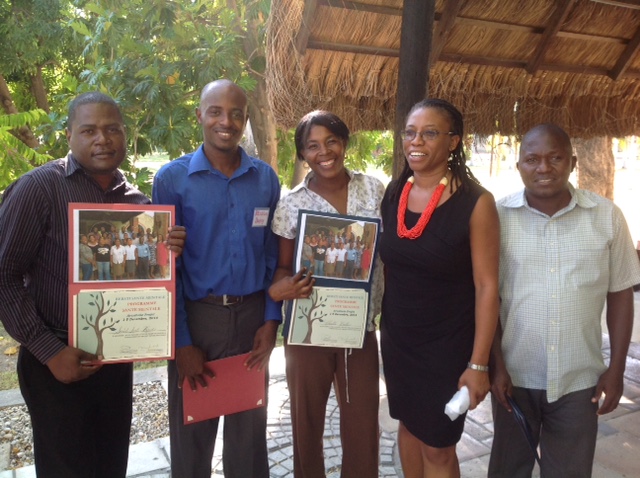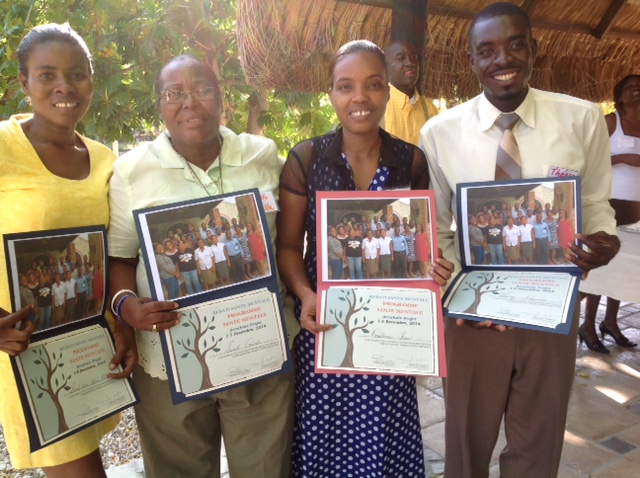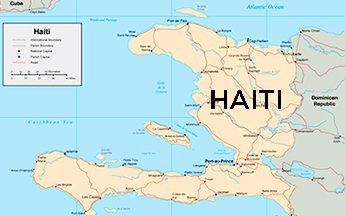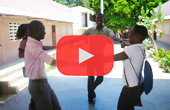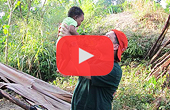The School of Education and Human Development and the School of Nursing and Health Studies are training Haitians to provide mental health services where needed.
The massive earthquake had occurred months earlier, and the mother continued to search for her missing daughter, just 10 years old. The little girl was at her school in Petit Goave, a town about 42 miles from Port-au-Prince, when the earthquake struck.
Days and weeks after the quake, rescue workers continued to clear debris, hoping for miracles but mostly finding the remains of victims. A leg was found, shoe and sock intact, identifying it as belonging to the young child. The grieving mother claimed the leg and took it home, bathed it, and kept it close to her.
The townspeople and several local mental health workers were shocked by the mother’s reaction and reached out to University of Miami Professor Guerda Nicolas, a native of the island, who has conducted mental health training in her country for many years. Nicolas advised against forcing the mother to give up the remains of her daughter.
“When you have an earthquake that kills that many people, there is no way to make sense of it,” says Nicolas, an associate professor in the School of Education and Human Development. “It is an abnormal situation and when you have an abnormal situation then all behavior within it has to become normal.”
It is an abnormal situation and when you have an abnormal situation then all behavior within it has to become normal.
Eventually the mother did bury the remains following a formal funeral.
Trained as a clinical psychologist, Nicolas lost an uncle and several other relatives in the quake. In the days following the disaster she continued to grieve in Miami but also became an active spokesperson for her countrymen and helped many interpret what many Haitians, both on and off the island, were feeling.
Based in Miami, Nicolas was a commentator on numerous news shows, including National Public Radio and CNN. She also helped organize an important vigil and town hall meeting at UM that brought together Haitian students, UM professors, and members of the larger community to organize relief efforts. But she knew that before Haiti could address rebuilding efforts, it was much more vital to help people deal with trauma and mental health issues and try to heal.
In the months that followed, Nicolas organized a mental health conference at the University of Miami that brought 75 experts from Haiti, Canada, and around the United States to talk about the mental health issues Haitians were dealing with post-earthquake and how to address them. This led to the creation of Rebatisante Mentale, an organization dedicated to establishing mental health capacity in Haiti.
The School of Education and Human Development also joined forces with the School of Nursing and Health Studies in obtaining a grant from the National Institute on Minority Health and Health Disparities to implement a “culturally adapted” mental health program created by Nicolas to educate Haitian health professionals on how to identify mental health issues and trauma.
Working out of L’Hopital Justinien in Port-au-Prince, Nicolas and a team from the School of Nursing and Health Studies that included Dean Nilda Peragallo Montano, Associate Professor Rosina Cianelli, and Carole Roseau provided training sessions.
Beginning in early 2012 and continuing through 2013, the team trained more than 110 workers and provided advanced instruction to 20 trainers, for the first time providing mental health services to workers from urban and rural areas of Haiti. This same training program now continues in Akayé, about 70 miles north of Port-au-Prince.
The latest project Nicolas is involved in is an extension of her commitment to the island and to education. Upon learning that many Haitian teachers lacked knowledge of their country’s history and legacy, Nicolas sought funding from the W.K. Kellogg Foundation to execute the Haiti Legacy Project. The program is creating material to enrich the curriculum for educators in the Akayé region.
Nicolas and a group of graduate students will train to teachers on the material and develop a team that can continue passing it along to other teachers in the future. Teachers will work in conjunction with the Musée Ogier Fombrun, a museum in Akayé that has collections on the history of pre-colonization, colonization, and the impact that the history of Haiti has had on the world.
“I wanted for the teachers to be aware of this museum and to understand the link between some of the symptoms that we’re going to talk about in the history of slavery and how it translates into their lives today,” says Nicolas.
As part of the program, Nicolas has launched a website that will enhance the teacher’s curriculum with information on the history of Haiti, its slavery past, historic revolution, literature, music, and global impact. The website also provides books on the history of the island, its music, and lists of relevant books that can be widely used by students and educators.
